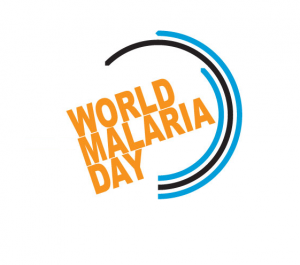As we celebrate the World Malaria Day today, It is very necessary to point out the challenges of this outrageous health problem in Nigeria. Malaria is termed one of the most serious health issues facing the world today. The World Health Organization estimates that over 300 million new cases of malaria arise a year, with approximately two to three million deaths resulting from contraction. Malaria is endemic in tropical Africa, with an estimated 90% of the total malaria incidence and deaths occurring here in Africa, particularly amongst pregnant women and children. More specifically, malaria is causing various problems in Nigeria. Malaria is the only vector borne disease to be placed on World Health Organization’s Disability Adjusted Life Years (DALYS ) list.
Nigeria has a population of about 170 million people. A large percentage of this population lives in extreme poverty in rural areas, without access to potable water and adequate healthcare. Nigeria is also a low-income country already saddled with a huge foreign debt burden. It risks sinking further into debt as it struggles with a sick populace whose good health is essential for its economic growth.
According to the WHO, World Malaria report, Nigeria suffers the world’s greatest malaria burden, with approximately 51 million cases and 207,000 deaths reported annually (approximately 30 % of the total malaria burden in Africa), while 97 % of the total population (approximately 173 million) is at risk of infection.
Traditionally, Chloroquine was a common treatment for Malaria. However, with the increase in chloroquine resistant malaria, additional methods of control must be employed. However, with the increase in chloroquine resistant malaria, there is now need for additional methods of control. A multidimensional approach should be used in the control strategy, such as good management of clinical malaria, the use of insecticide-treated mosquito net, education/awareness and training programs in malaria prevention, vaccine research and the use of insecticide spraying such as DDT on breeding sites. There is need to explore the use of indigenous natural mosquito repellant plant species. Pharmaceutical companies should study local anti-malarial herbs to determine their efficacy on malaria and effective and safe dosages should be found. The answer to malaria control may lie within local communities. Policies pertaining to the use of bed nets soaked in insecticides would be doubly advantageous and economical in rural areas. In Nigeria, the two most susceptible groups of people, are the pregnant mothers and infant children. Walls of mud huts in rural areas should be white washed to avoid attracting mosquitoes. Cracks and crevices where stagnant water can collect should be sealed. Partial funding for malaria control projects could be generated internally if the Nigerian government collected a levy from companies that are involved in activities that pollute the environment. Oil companies working in the Niger Delta areas, where there are many marshy swamps and a high prevalence of malaria, should also be asked to contribute to a general malaria control fund.
Remember this year’s theme; “Zero malaria starts with me”.

Let’s not forget that each and everyone of us have a role to play in the control of malaria in Nigeria. Take action today
Great.
But we must endeavour to all do our part in ensuring a free malaria Nigeria.
Yes of course, it is very necessary